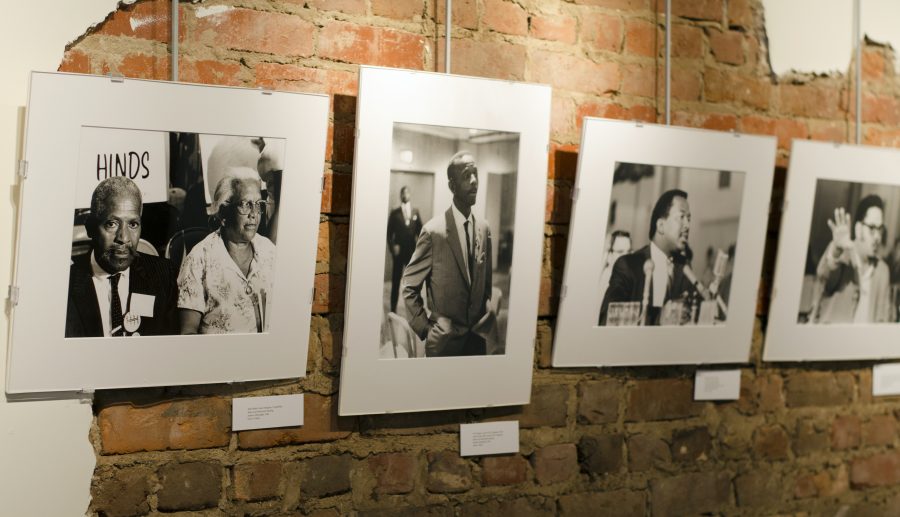Less than one block separates the local YMCA from the Schomburg Center in Harlem.
This short path inspired a long journey of civil rights activism for Doris A. Derby, whose documentary photography now adorns the walls of the University of Alabama Gallery in the Dinah Washington Cultural Arts Center.
Derby studied tap and ballet as a child, eventually receiving a scholarship to study African dance at the YMCA through the Katherine Dunham workshop series. After learning that the Schomburg – a library with a large collection of African culture and literature – sat just around the corner, Derby would visit before or after every dance class.
“So by being in Harlem for my African dance classes, it exposed me to the richness of African American culture and the different aspects of the arts,” she said. She also discovered an outdoor visual arts fair on 125th Street, where she loved to speak to the artist who created the image, she said.
Her own photography exhibit, “Fertile Ground: The Civil Rights Movement and its Legacy in the Mississippi Delta,” opened Friday evening with an artist’s talk and the presentation of one photograph to the University.
“I especially love this one because it is so dynamic,” Derby said of the photograph, which depicts civil rights leader Fannie Lou Hamer at the Mississippi Democratic Nominating Convention in 1968. The photograph will be displayed in the Paul R. Jones Collection of American Art and was one Jones expressed interest in collecting before his death in 2010.
Hamer’s vibrant life is in part what makes the photograph a dynamic addition. The once-sharecropper became an important leader for the Civil Rights Movement and the grassroots community, Derby said.
“[Hamer] had a great spirit, she had a lot of musical talent, she had beautiful savvy, and her words were words of wisdom for the grassroots and everyone else,” Derby said. “Like she said, she didn’t care if you had a Ph.D. or no ‘D,’ you’re all going to go through the same thing, and you all could achieve.”
The image is one Derby captured in Mississippi between 1963 and 1972, like the others in the exhibit. She was part of the Student Nonviolent Coordinating Committee, which led her to Jackson, Mississippi, from her hometown in the Bronx to work in an adult literacy program.
During her time in the state, Derby also worked with the Mississippi Freedom Democratic Party, Child Development Group of Mississippi Head Start program, and as a co-founder of Free Southern Theater, among other groups and initiatives. Many of the photographs in the exhibit represent people at events for these groups.
Ellen Griffith Spears, an associate professor in both New College and American Studies, introduced Derby Friday evening. The pair’s paths have crossed over time, and Spears is excited to have the photographs in Tuscaloosa.
“Derby highlights the ordinary activities of ordinary people in extraordinary times,” Spears said. “And we have to be reminded that’s who made the changes in the civil rights movement in the South, and in the country, really.”
Derby’s photographs have also been featured in multiple publications, as well as the Smithsonian Institution and other museums across the country. Her husband of nearly twenty years, Bob Banks, said creating an exhibit is almost like watching a child grow up; the tiny negatives become enlarged images in frames that are actually starting to create a storage issue in their home in Atlanta.
But, the photographs represent tales of incredible times, Banks said. Before becoming an actor, Banks served in the United States military.
“[Derby] can tell you stories that would rival anything I can tell you about Vietnam,” he said.
The strength and unity of the civil rights movement reminded Derby that she is a part of something bigger than herself, she said. When met with opposition, she and other activists and supporters stood together.
“As long as you can create and think, you can figure out other things, too,” Derby said.
Derby’s exhibit, “Fertile Ground: The Civil Rights Movement and its Legacy in the Mississippi Delta,” will be in the Dinah Washington Cultural Arts Center until October 30. Visit cac.tuscarts.org for more information.









